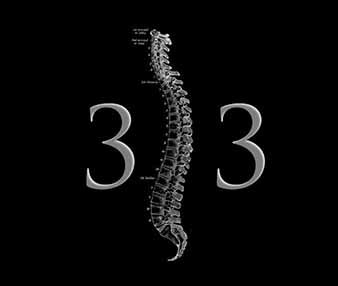“It can be used by anyone, so to speak, as a form of socialization to evil. And they don’t necessarily call it that but that’s what happens, in effect.” – Robert Jay Lifton
Menticide is the destruction or undermining of a person’s mental independence in order to alter his or her mind. It is also known as mind control, brainwashing, coercive persuasion, and thought reform.
The word menticide comes from the Latin mens (“mind”) or mentalis (“mental”) and -cīda (“killer”), which is an analogy to homicide, or genocide on the brain.
Mental independence is the ability to think for yourself and make your own decisions about what you believe or want. Mentacide is a psychological science that is used to break people’s ability to think for themselves.
The goal is to destroy the mind or the will of an individual or group of people to abandon their ability to reason, use logic, and deliberately alter an individual’s personality or beliefs. It is also often compared with cognitive dissonance – when people change their beliefs because they don’t want them to conflict with their actions or feelings.
The American Journal of Psychiatry describes it as the tool of a tyrant to transfer his thoughts into his victims:
“The concept of “menticide” indicates an organized system of judicial perversion and psychological intervention, in which a powerful tyrant transfers his own thoughts and words into the minds and mouths of the victims he plans to destroy or to use for his own propaganda. Modern psychiatry may deliver him several tools for this perversion.”
This is normally accompanied by indoctrination about the superiority of the captors’ (tyrant’s) ideology or system and lessons intended to obstruct their ability to think independently. Your own people, culture, and your very being are demonized as the mental assailants issuing the mind control propaganda are held up as saviors and demigods.
The methods used vary depending on the desired outcome, but they generally fall into two categories: psychological and physical methods.
Psychological methods include:
Brainwashing (school, media, politicians, and corporations)
Chaotic Inormation
Manipulation or behavior modification techniques
Hypnosis
Sleep deprivation
Sensory deprivation and isolation
Malnutrition;
Propaganda campaigns
Mind reading machines
Behavior modification techniques
Physical techniques include:
Torture
Sexual abuse
Drugs
Electroconvulsive therapy (ECT) and other forms of shock treatment
Brain implants
It has been used for education and political purposes such as brainwashing prisoners of war or indoctrinating children into becoming good citizens. As an example, during World War II, the U.S. Office of Strategic Services used various techniques including sleep deprivation and physical torture to break down prisoners of war in order to make them more compliant with interrogation techniques.
Menticide is not just a problem in war, politcis and the classroom, It happens all around us every day, from the moment we wake up until we go to bed at night. We are constantly bombarded with messages by corporationsabout what is good and bad for us, who we should be patterning ourselves after, what we should be buying and selling — even what kind of body image we should have!
The term was introduced by Viktor Frankl in his 1946 book Man’s Search for Meaning. Frankl described the systematic destruction of hope and the denial of meaning as “the primary cause” of mental illness and neurosis, which he called “menticide”. He argued that the core feature of mental illness is a distorted perception of reality, and that it can be cured through an active search for meaning.
American psychologist William Sargant wrote in his book, Battle for the Mind: A Physiology of Conversion and Brain-Washing (1957) that certain brainwashing techniques could be used to increase suggestibility and produce complete subjection to an authority figure. He also concluded that such methods were most effective if they targeted and destroyed a subject’s own personality before introducing new ideas.
According to Sargant, this process could be achieved through isolation, psychological exhaustion, domination and control over all aspects of daily life.
The victim would then be reprogrammed with new beliefs and values that were completely incompatible with their previous way of thinking.
Sarant wrote;
“Much human behavior is the result of the conditioned behavior patterns implanted in the brain, especially during childhood. These may persist almost unmodified, but more often become gradually adapted to changes of environment. But the older the person, the less easily can he improvise new conditioned responses to such changes; the tendency then is to make the environment fit his, or her, increasingly predictable responses. Much of our human life consists also in the unconscious following of conditioned behavior patterns originally acquired by hard study.”
Sargant postulates that ordinary the person is much more easily indoctrinated than the strong willed, abnormal or crazy people. But even they can be susceptible to suggestion and mind control when their brains are fatigued by uncertainty, anxiety, and stress. He believes that every brain, no matter how strong the individual, eventually gets fatigued. Saragnt wrote;
“It is not surprising that the ordinary person, in general, is much more easily indoctrinated than the abnormal. Even intensive psychoanalysis may achieve very little in such severe psychiatric disturbances as schizophrenia and depressive melancholia, and can be almost equally ineffective in certain settled states of chronic anxiety and obsession.
A person is considered “ordinary” or “normal” by the community simply because he accepts most of its social standards and behavior patterns which means, in fact, that he is susceptible to suggestion and has been persuaded to go with the majority on most ordinary or extraordinary occasions.”
Sargant says;
“Ordinary people, let me repeat, are the way they are simply because they are sensitive to and influenced by what is going on around them; it is the lunatic who can be so impervious to suggestion.”
Later he writes;
“The most kindly, generous and humane of men have in fact been conditioned, throughout history, to commit acts which appear horrifying in retrospect to those who have been differently conditioned. Many otherwise sensible people cling to strange and cruel views merely because these have been firmly implanted in their brains at an early age, and they can no more be disabused of them by argument than could the generation that still insisted on the flatness of the earth, though it had been circumnavigated on several occasions.”
FBI director J. Edgar Hoover referred to thought-control repeatedly in his book Masters of Deceit: The Story of Communism in America and How to Fight It.
In the 1961 book, Rape of the Mind, Author Joost Meerloo claims Menticide is used by the ruling class to control the thoughts of those they intend to destroy. Joost was the Chief of the Psychological Department, Netherlands Forces, and writes from personal experience because he himself spent some time in a Nazi concentration camp. The preface of the book reads;
“The seduction of the mind and stealthy mental coercion are among the oldest crimes of mankind. They probably began back in prehistoric days when man first discovered that he could exploit human qualities of empathy and understanding in order to exert power over his fellow men. The modern words ‘brainwashing’, ‘thought control’, and ‘menticide’ serve to provide some indication of the actual methods by which man’s integrity can be violated. When a concept is given its right name, it can be more easily recognized — and it is with this recognition that the opportunity for systematic correction begins.”
Joost wrote;
“Menticide is an old crime against the human mind and spirit but systematized anew. It is an organized system of psychological intervention and judicial perversion through which a [ruling class] can imprint [their] own opportunistic thoughts upon the minds of those [they] plan to use and destroy.”
In 1983, Robert Jay Lifton published Thought Reform and the Psychology of Totalism: A Study of “Brainwashing” in China, in which he introduced the concept of “coercive persuasion.” He described how political prisoners in Chinese labor camps were subjected to intense indoctrination and coercive persuasion techniques that destroyed their ability to think independently. Examples included physical torture, sleep deprivation, hypnosis and drugs such as scopolamine.
In the book, Lifton details how the Chinese government systematically attacked and destroyed the spirits of Chinese intellectuals during the Cultural Revolution (1966-1976). He describes it as “the systematic and forcible replacement of individual psychology by group psychology” and “the calculated destruction of a person’s capacity for objective thinking.”
Ultimately, he says this leads to the “socializtion of evil.”
Lifton’s concept describes thought reform or mind control as a process that undermines a person’s mental independence, and he argued that this process could be applied to an entire society. He believes that it is not just the deliberate attempt to destroy someone’s mind; it is also the less conscious ways that people are made to feel dependent on others, or how they are persuaded to accept certain beliefs without question.
According to Lifton, menticidal techniques include “thought stopping” (suppression of unwanted thoughts), guilt inducement, hypnosis, double binds, love bombing and other techniques which tend to destroy a person’s sense of identity. These methods are often employed with the intention of creating clones of those who use them.
In this work on the Nazi doctors your focus on historical processes and psychological processes come together as you account for the way the medical profession participated in the extermination of the Jews at the Auschwitz camp. Let’s talk a little about the psycho-historical principle of the Nazi regime and how it combined with the psychological processes within the doctors which you call “doubling.”
In an interview with Harry Kreisler, Lifton describes the process of the indoctrination of the Nazi doctors, medical killing, and the psychology of genocide as the socialization to evil and what he came to call “doubling.”
Lifton said, “One reason that I embarked on a study of Nazi doctors was that in this personal journey, I had the feeling increasingly that I did want to do a Holocaust study and that increasingly I wanted it to be of perpetrators, which I thought was more needed. I was involved with ideas about survivors but a lot of work had been done on them and very little on the psychology of perpetrators.”
KREISLER: So you moved from survivors to perpetrators.
LIFTON: That’s right, in studying Nazi doctors. And when somebody, in fact, who had been my editor part of the time for my study of Hiroshima survivors called me up and said he had some interesting materials on a trial of doctors, it involved mainly doctors in Frankfurt, and wanted to show them to me, I really jumped at that opportunity to make that the beginning of a study of Nazi doctors, because they were revealed to me to have been very important in the killing process.
And the way that I came to see it as I studied it more was that the Nazis, especially Hitler and his inner circle, really viewed their whole movement as mainly biological. One Nazi doctor whom I interviewed put it in words like this: “I joined the Nazi party the day after I heard a speech by Rudolph Hess in which he declared National Socialism was nothing but applied biology.” And the applied biology for the Nazis was finding some way to heal or cure the Nordic race.
The idea was, partly in Hitler’s writings, the Nordic race was the only creative race, that could create culture. The other races could sustain it but not create it. And the Jewish “race” was a culture-destroying race. But the Jewish race had infected the Nordic race and something had to be done to get rid of that infection.
So this is, in a sense, a biological kind of process and I called it in my work, a “biomedical vision” at the heart of Nazism. And that was a major reason why they focused so centrally on the doctors as a group, which Hitler emphasized very early on: doctors were especially important to the whole Nazi project. And it turned out to be that way, as I found in my work.
KREISLER: And so this Nazi ideology lifted up the doctors but internally. Tell us a little about this process of “doubling” and how healers became killers at the Auschwitz camp.
LIFTON: One dimension was the large psycho-historical dimension we just talked about, that biomedical vision. But the other dimension was what you are raising now, the nitty-gritty way in which a doctor who is trained to heal instead becomes part of the killing mechanism. A lot of things made it happen, and there’s a process that can be called “socialization to evil.”
Nazi doctors joined the party seeking the promise of revitalization that Hitler offered. That’s joining the medical profession, which is a group of its own, and then the military, and then being sent to a camp — all those were groups they became part of and were socialized to. The socialization to evil, I discovered, is all too easy to accomplish. These doctors had not killed anybody until they got to Auschwitz, so they weren’t extraordinary killers to start with.
They were ordinary people who in that way were socialized to evil.
And a key mechanism in that socialization to evil was what I came to call “doubling.” One can understand that if one sees that these Nazi doctors were at the heart of the killing process in Auschwitz. They did selections, they selected in the camps. They were in charge of declaring people dead. In a sense, they ran the killing process, although their assistants more and more did it for them.
So when they were in Auschwitz they had an Auschwitz self, which was responsible for doing all of this, as well as for the very vulgar life that one led in Auschwitz. Very heavy drinking and vulgar jokes, and the whole combination of things that made up Auschwitz. But they would go home to their families, from Poland to Germany, for weekends or for leaves and they would be ordinary fathers and husbands where they would function in a relatively ordinary way, calling forth a non-Auschwitz self or a prior, relatively more humane, self. And each of these selves functioned as though it were a separate autonomous self.
And that’s why I called it “doubling,” even though, of course, they were part of the same overall self. And doubling has more to do with the work of Otto Rancke, one of the early psychoanalysts, than with Freud himself, but that kind of process is talked about in his work and in some other early psychiatric practitioners and psychological practitioners. But it became a mechanism of socialization to evil, as I saw it, in Nazi doctors, and of course it was a very worrisome kind of insight because it didn’t have to stop at Nazi doctors.
It certainly was embarked upon in many ways by Aum Shinrikyo, the destructive murderous cult which I studied more recently. So it can be used by anyone, so to speak, as a form of socialization to evil. And they don’t necessarily call it that but that’s what happens, in effect.
Educator and author, Sol Gordon used the term as a way to describe what he believed was happening in America’s schools. In his book, The Tyranny of Testing (1974), he describes how schools were undermining students’ ability to think independently by teaching them to memorize facts and regurgitate information.
In 1984 Philip Zimbardo published an article titled “Mental Health Practice: Ethical Issues in Diagnosis and Treatment” where he discussed what he termed “thought reform” methods used in prisons (Zimbardo & Boyd 1979). These were methods designed to induce extreme stressors in prisoners which led them to question their own identity.
Peter R. Breggin, M.D., who wrote the book Toxic Psychiatry in 1991 (which was later revised and updated). Menticide is the destruction or undermining of a person’s mental independence in order to alter his or her mind.
In Chapter Three of Toxic Psychiatry, Dr. Breggin explains that psychiatrists use drugs to treat symptoms rather than identify and treat their causes. He also explains that this practice of treating symptoms rather than causes is called symptomology. He says that there are three main types of symptomology: pharmacologically-induced (drug-based), neuroleptically-induced (antipsychotic drug-based), and psychosurgery-induced (lobotomy-based). Dr. Breggin writes that these types of symptomology are all forms of menticide because they destroy mental independence by altering the way people think about themselves, their surroundings, and others around them.
In his book The Future of Human Nature (2003), Peter Singer describes menticide as “the deliberate attempt to control what people think about themselves and their world.” Singer argues that menticide has become commonplace in modern society because it is possible for governments or corporations to manipulate people through mass media or advertising.
Joost Meerloo claims modern technology is making iot worse:
“Modern technology teaches man to take for granted the world he is looking at; he takes no time to retreat and reflect. Technology lures him on, dropping him into its wheels and movements. No rest, no meditation, no reflection, no conversation – the senses are continually overloaded with stimuli. [Man] doesn’t learn to question his world anymore; the screen offers him answers-ready-made.”
Even the people who are in control of their own minds who Joost called the normal people can be affected by the constant barrage of brainwashing and the human maniacs who help perpetuate the madness.
“It would be a vast oversimplification to stick an easy psychiatric label on all such feelings of mental persecution, for there are many real, outside mental pressures in our world, and there are many perfectly normal people who are continually aware of and disturbed by the barrage of stimuli directed at their minds through propaganda, advertising, radio, television, the movies, the newspapers — all the gibbering maniacs whose voices never stop. These people suffer because a cold, mechanical, shouting world is knocking continually at the doors of their minds and disturbing their feelings of privacy and personal integrity.”
Today, we can see the menticide everywhere with the pathological totalitarian brainwashing that is now globalized and digitized. As we sit on social media platforms like Facebook and Twitter to passively allow our thoughts and social interactions to be managed, manipulated and recorded.
I will leave you with some hope with a quote from Victor Frankl
“Everything can be taken from a man but one thing: the last of the human freedoms—to choose one’s attitude in any given set of circumstances, to choose one’s own way.” “When we are no longer able to change a situation, we are challenged to change ourselves.”

Moe is the founder of GnosticWarrior.com. He is a father, husband, author, martial arts black belt, and an expert in Gnosticism, the occult, and esotericism.










They use mycoplasma to change victims’ facial features, making him/her more or less attractive.
Hey Moe!
Spot on my Brother. You have keen spidey senses, and Eye thank you for writing this piece. Awareness is key to defending against such atrocities.
Thanks for spreading Truth.
Peace, Love, and Gratitude from Kentucky,
Anna 🍀